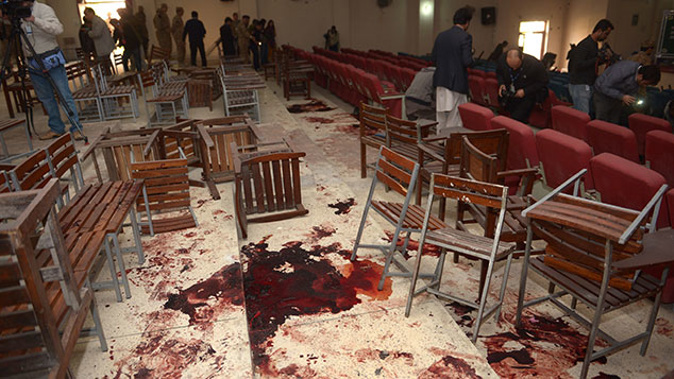
Pakistan will end its moratorium on the death penalty in terror-related cases, the prime minister's office says, a day after Taliban militants killed 141 people in an attack on a school.
The assault on the army-run school in the northwestern city of Peshawar, the deadliest terror attack in Pakistan's history, has triggered widespread revulsion.
Political and military leaders have vowed to wipe out the homegrown Islamist insurgency that has killed thousands of ordinary Pakistanis in recent years.
"The prime minister has approved abolishment of moratorium on the execution of death penalty in terrorism-related cases," an official from Prime Minister Nawaz Sharif's office said.
Hanging remains on the Pakistani statute book and judges continue to pass the death sentence, but a de facto moratorium on civilian executions has been in place since 2008.
Only one person has been executed since then, a soldier convicted by a court martial and hanged in November 2012.
Rights campaign group Amnesty International estimates that Pakistan has more than 8000 prisoners on death row, most of whom have exhausted the appeals process.
Supporters of the death penalty in Pakistan argue that it is the only effective way to deal with the scourge of militancy.
The courts system is notoriously slow, with cases frequently dragging on for years, and there is a heavy reliance on witness testimony and very little protection for judges and prosecutors.
This means terror cases are hard to prosecute, as extremists are able to intimidate witnesses and lawyers into dropping charges.
Take your Radio, Podcasts and Music with you









